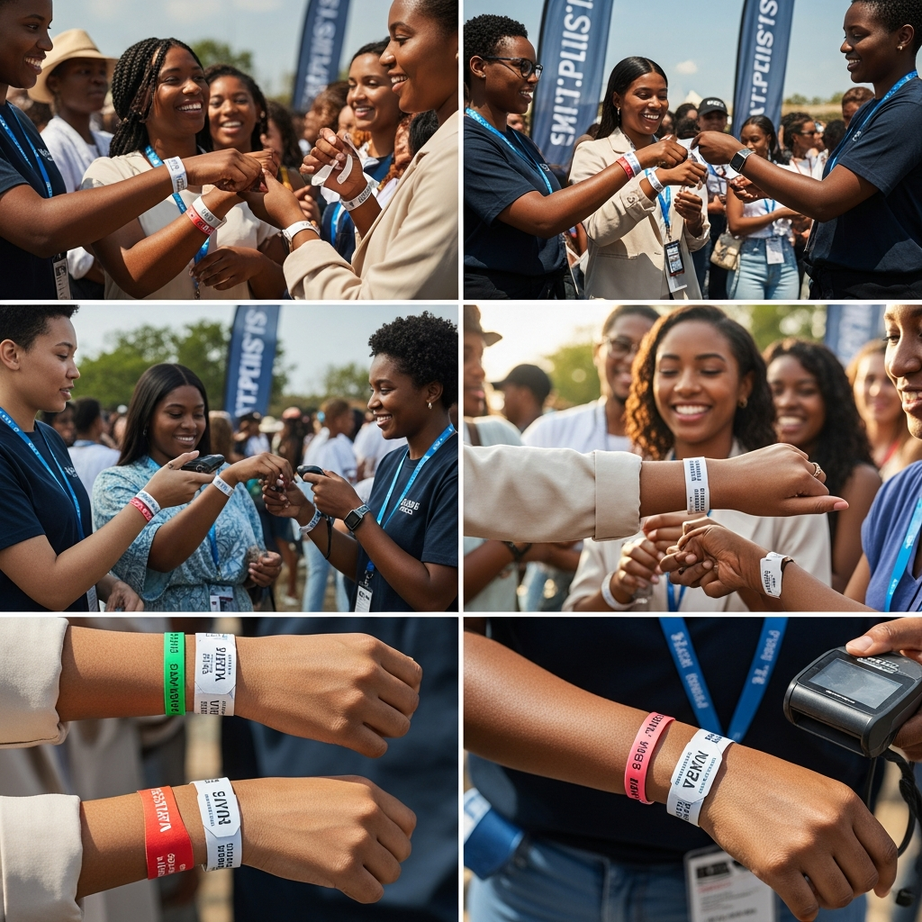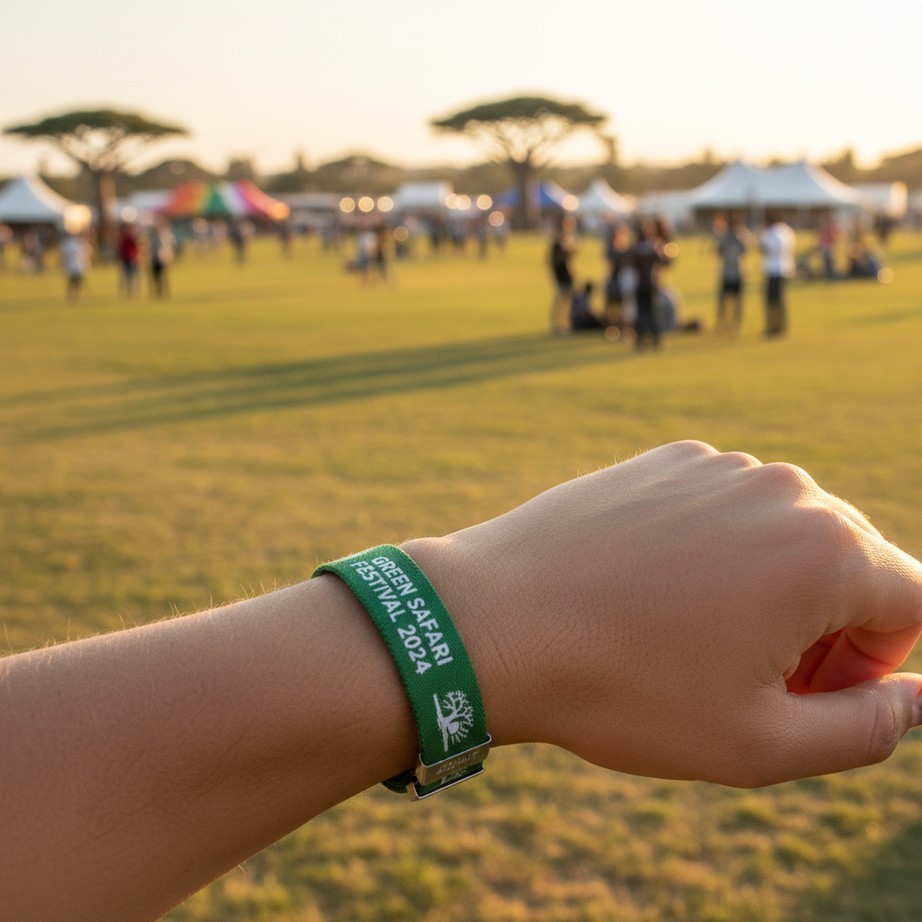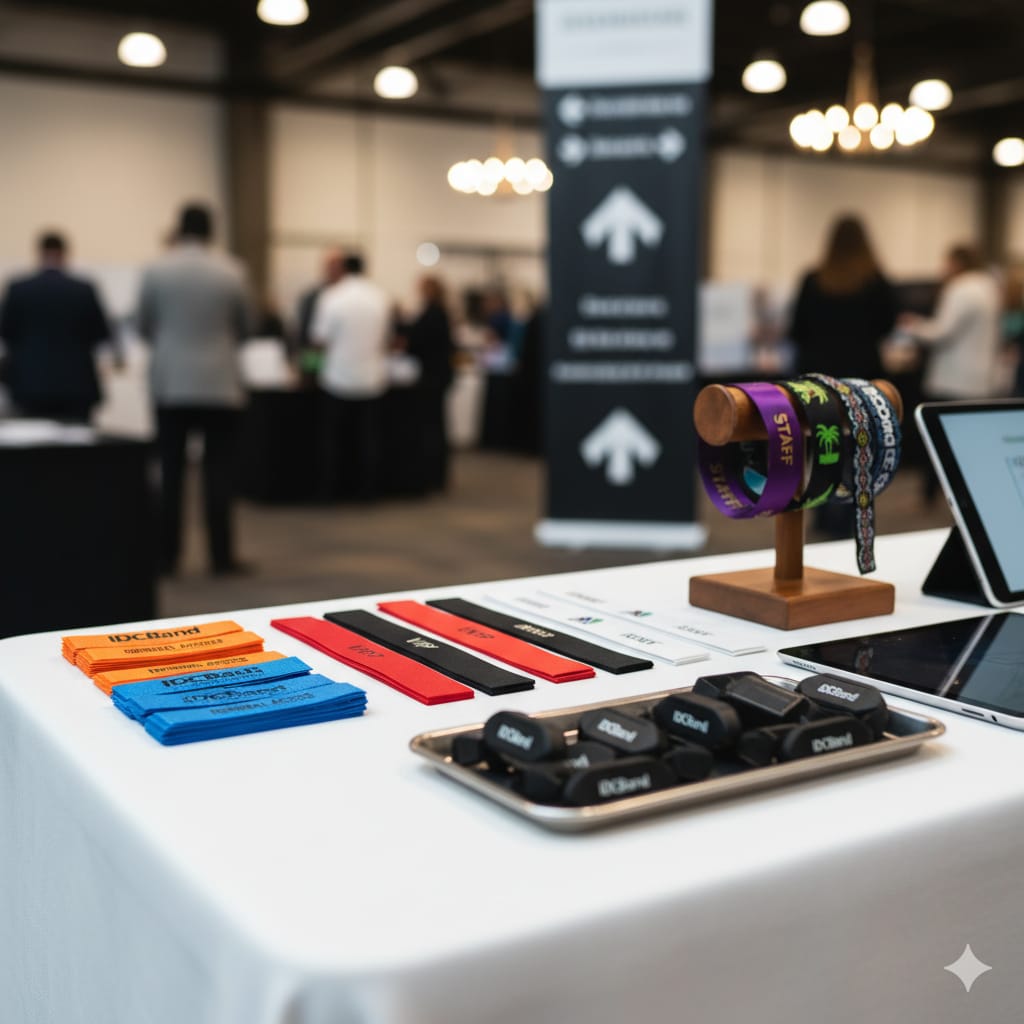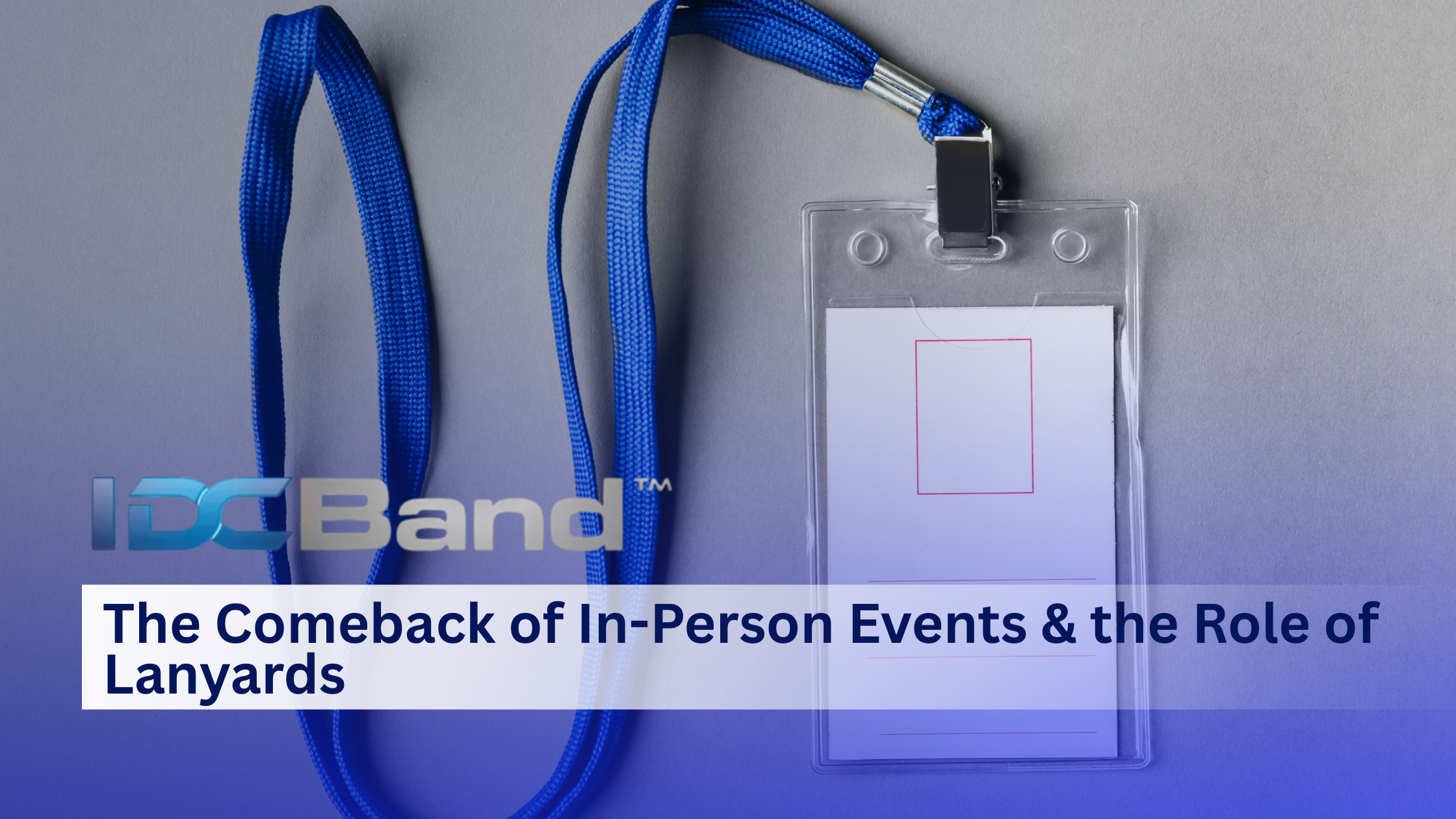Is it Wrist Bands or Wristbands?
How the Spelling Debate Started
Early Use of Both Spellings
When you look back at old catalogues and newspapers, it’s easy to find both “wrist bands” and “wristbands” used for the same thing. The split spelling “wrist bands” comes from a time when English words were often kept separate if they described something simple—a band you wear on your wrist. The push to combine words often started in advertising, where shorter, catchier names sold more products. As silicone wristbands became more popular, especially for events and fundraising, companies had to pick a single spelling for their packaging and marketing.
Language Changes Over Time
English is always shifting, and that means spellings change too. What was once two words can become one, especially when a product goes from a basic description to a distinct item with its own identity. This happened with “notebook,” “hairbrush,” and many other words. Both “wrist bands” and “wristbands” are still seen, but the joined form is becoming the standard as more people recognise it as a product rather than just a piece of material.
The Role of Dictionaries and Style Guides
Dictionaries have a big influence on what is accepted in writing. Early versions of South African and British English dictionaries showed “wrist band” as the main form, but newer editions have switched to “wristband.” Style guides for newspapers, schools, and companies now tend to recommend the single word. This is because it is easier to read, less likely to be split up by mistake, and reflects how people talk about the product in real life.
Wristbands in Everyday Language
Common Spelling in South African English
In South Africa, both spellings can be found, but “wristbands” is far more common in recent years. Product packaging, event signage, and even government health campaigns use the single word. Most people searching for these products online use “wristbands” rather than the split version. The same goes for stores and online listings, where the single word feels more professional and official.
Differences in British, American, and Other Variants
South African English sits close to British English, and both have mostly moved to “wristbands.” American English also uses “wristbands,” especially when referring to silicone, fabric, or event bands. Other countries sometimes keep the words separate, but global trade and the influence of the internet are pushing the single-word spelling to the front. Even so, in some printed materials or official documents, you might still spot the older form, especially if they were written before the 2000s.
How People Use the Term in Speech and Writing
When talking, most people don’t think about the spelling at all. But in writing, especially for websites or printed marketing, it’s clear that “wristbands” is now seen as the correct choice. It’s faster to type and easier to fit on labels, packaging, and banners. Some teachers or language professionals might correct the older spelling if they see it in reports or articles.
The History and Evolution of the Word
Where “Wrist Bands” Comes From
The phrase “wrist band” dates back to clothing descriptions, where it meant a band of fabric or leather worn around the wrist. Early military uniforms used the term for cuffs or decorative armbands. In the sports world, “wrist bands” were cotton or towelling strips used to wipe sweat. Over time, the meaning expanded as new materials and uses came along.
When and Why “Wristbands” Became Popular
The switch to “wristbands” took off with the rise of the silicone wristband. This product wasn’t just a strip of cloth or leather—it was a new kind of accessory. Once businesses and event organisers started ordering and printing millions of bands for campaigns and concerts, they needed a simple, recognisable name. “Wristbands” felt modern and direct. Marketing teams liked it because it was catchy and easy to print in big letters. Once the single-word spelling became popular in campaigns and advertising, it spread quickly into everyday use.
Tracking the Change in Advertising and Media
Advertising has a big role in changing how words are spelled. Once event organisers and brands started using “wristbands” in their ads and posters, people followed their lead. Media coverage of sports, concerts, and charity events pushed the single-word spelling even further. As news stories, blog articles, and social posts multiplied, the joined spelling soon outpaced the older form.
Industry Standards and Accepted Usage
How Event Planners and Manufacturers Spell It
If you look at the way event organisers, suppliers, and wristband makers write about their products, “wristbands” is the default. It’s used on order forms, invoices, product listings, and all official paperwork. This standard makes it easier for everyone in the industry to avoid confusion when buying or selling in bulk. In training materials and handbooks for staff, “wristbands” is seen as correct.
Wording on Packaging, Labels, and Product Descriptions
When you open a box of event wristbands, the packaging almost always uses the single word. Labels, product tags, and barcodes are kept short and simple, which fits better on small items. Even at large retail stores, the shelves are marked with “wristbands.” Online shops and catalogues follow the same pattern. This helps customers find what they want quickly, without second-guessing which spelling is right.
How Government and Educational Sites Write It
Government health departments, schools, and universities often set the tone for spelling in their materials. Official campaigns use “wristbands” when sending out information about event access, health warnings, or fundraising campaigns. School event notices and newsletters use “wristbands” for house events or field trips. This keeps the language standard and avoids confusion among parents and students.
Why Consistency Matters for Brands and Businesses
Brand Perception and Trust
Small things like spelling can have a big impact on how professional a brand looks. Inconsistent spelling on your website, brochures, and emails makes the business seem less trustworthy or less careful. Customers and partners notice when details change from one place to another. Sticking to a single spelling—“wristbands”—across all your materials helps build confidence and shows attention to detail.
SEO and Search Rankings
Search engines like Google pay close attention to keywords. If your site mixes “wristbands” and “wrist bands,” it can confuse both the search engine and the customer. Using one spelling throughout your website, blog, and product listings improves your chances of ranking higher in searches. Most people search for “wristbands,” so matching your site to that term brings in more visitors. For paid advertising, a single keyword makes it easier to set up campaigns and track their success.
Consistency in Printed Materials and Digital Content
From catalogues and business cards to social media posts and banners, the same spelling should appear everywhere. This keeps your brand identity strong and makes it easy for people to recognise and remember your business. When customers see the same word every time, they connect it with your products and services. Staff and partners also find it easier to follow company guidelines when the rules are clear.
How Spelling Affects Search and Online Discovery
What People Type When Looking for Wristbands
Most people searching online type “wristbands” rather than “wrist bands.” Search engines will show results for both, but the sites using the single-word spelling are likely to appear higher up. Some people still use the older spelling, especially if English is their second language or they’ve learned it from older materials. But search trends show that “wristbands” has taken the lead, especially for products like silicone, event, and charity bands.
Keyword Tools and Spelling Variations
When using tools like Google Keyword Planner, you’ll find that “wristbands” gets far more searches than “wrist bands.” This means you should focus on the single word in your website copy, product titles, and meta descriptions. Keeping things consistent not only helps with rankings but makes your ads and content look more professional. If you do use the two-word form for a specific reason, make sure it’s on a separate page or used as a secondary keyword.
Impact on Website Traffic and Advertising
If your business relies on website traffic, small changes in spelling can make a big difference. Sites that switch to the most-searched spelling usually see an increase in visits, as more people find them through Google or Bing. For advertising, using “wristbands” in your ad copy, headlines, and descriptions brings in more clicks and keeps your quality score high. It’s a simple change that pays off quickly.
Advice for Writers, Marketers, and Content Creators
When to Use “Wrist Bands” and When to Use “Wristbands”
If you’re writing for a modern audience or creating content for marketing, always use “wristbands.” Save the two-word spelling for older historical texts or where the context demands it, such as referring to bands on a garment or part of a uniform. For everything related to silicone, fabric, event, or charity bands, “wristbands” is the spelling people expect.
Tips for Maintaining Consistency
Keep a style guide for your business or team that clearly says which spelling to use. Train all writers, designers, and marketers to check their work before publishing. Use the search function in your documents and websites to find and replace the wrong form. If working with outside agencies or suppliers, send them your guidelines to keep the spelling uniform.
Building a Glossary for Your Business
A simple glossary of terms can save a lot of headaches. Include all the standard words your business uses, like “wristbands,” “lanyards,” or “access cards.” This makes onboarding new staff faster and helps avoid mistakes in marketing materials. Over time, your customers will come to recognise your business by the words you use, building loyalty and trust.
Cultural and Regional Differences
Examples from South Africa and Abroad
In South Africa, “wristbands” is the spelling seen in most shops, events, and schools. It’s the same in the UK, Australia, and much of Europe. Some countries still use “wrist bands,” especially in older books or formal documents. But as international brands and global trade grow, the joined spelling keeps gaining ground. Even local businesses now prefer the single word to keep up with trends and appeal to younger buyers.
How Different Sectors Handle the Spelling
Different sectors sometimes stick to their habits. Fashion or uniform suppliers might still say “wrist bands” when talking about clothing. In medical settings, “wristbands” is used for patient ID bands. Event planners, security firms, and manufacturers nearly always use “wristbands” to avoid confusion. Following the pattern of your sector helps keep your communication clear and relevant.
The Influence of Pop Culture and Trends
TV shows, movies, and music often shape the way people use words. As wristbands became popular at concerts, sports matches, and on social media, the single-word spelling spread. When celebrities or influencers talk about their “wristbands” online, the spelling quickly catches on. Over time, the influence of pop culture helps push language in a new direction, and “wristbands” has become the norm.
Common Mistakes and How to Avoid Them
Mixing Spellings in the Same Document
One of the easiest ways to lose credibility is to switch between “wrist bands” and “wristbands” in the same document. This looks unprofessional and makes it hard for readers to follow your message. Always double check before publishing, and get someone else to proofread if possible. Clear guidelines for your team help catch mistakes before they go out to the public.
Copy-Paste Errors and Template Issues
If you’re copying text from older materials, websites, or supplier templates, be careful about spelling differences. Sometimes a website or form uses one spelling and your business uses another. Before you hit print or publish, scan the document for any mismatched words and fix them. Updating your templates to use “wristbands” everywhere saves time and stress in the long run.
Proofreading and Quality Control Tips
Set aside time to proofread every document or web page before sending it live. Use digital tools like spell check, but remember they don’t always catch every mistake. If you manage a big website, do a site-wide search every few months to check for the wrong spelling. Ask staff to report any mistakes they spot so you can fix them quickly.
The Future of the Word “Wristbands”
Emerging Trends in Language
Language will always change as people invent new uses and products. As more wearable technology appears—fitness trackers, access control, health monitors—the word “wristbands” could become even broader. Tech companies, designers, and marketers are all pushing for easy-to-read, memorable names, which means short, joined words will keep growing in popularity.
How Tech and Digital Media Drive Change
Social media, online shopping, and mobile apps are making the world smaller and speeding up language change. When you only have a few characters for a product name or hashtag, a single word always wins. Apps, online stores, and event platforms almost always use “wristbands,” making it even more familiar for customers. Tech trends will probably push the single-word spelling further, even into areas where it hasn’t yet caught on.
Why Simplicity Usually Wins Out
In the end, people and businesses choose what works best. The spelling “wristbands” is simple, clear, and easy to remember. That’s why it has become the standard in South Africa and around the world. Brands, marketers, and event organisers who keep their language simple and consistent see better results, higher trust, and more sales. Stick with “wristbands” in your business, and you’ll be keeping up with the times.






